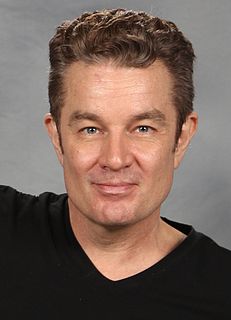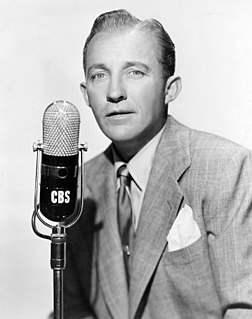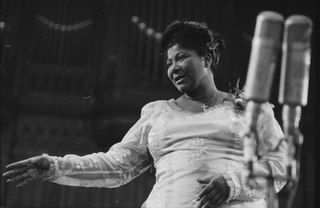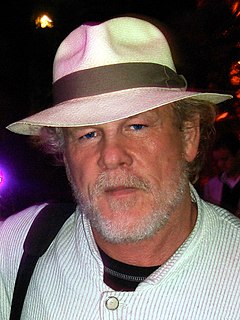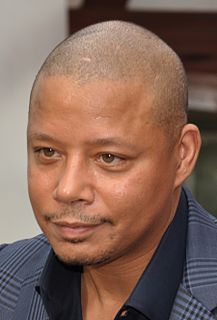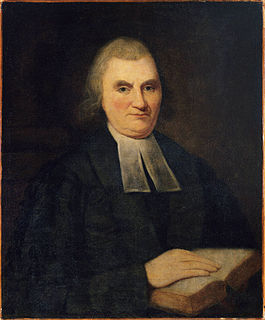A Quote by Robert Burchfield
The English language is rather like a monster accordion, stretchable at the whim of the editor, compressible ad lib.
Related Quotes
I'm not an ad-libber. If I'm asked to ad-lib, I can ad-lib forever and it's really fun to do that, but I find that well-written scripts are put together very carefully. Once you start to ad-lib and add words to sentences, there's a slacking that happens. When it's good writing, it's taut. I'm not judging people who do ad-lib.
Generally, there's a lot of ad-lib involved with live TV and things like that, whereas with acting in front of the camera, it was, if you screwed up a line, well, you've got another take, and you also had a script to be able to study, so it wasn't all ad-lib and flying by the seat of your pants, which I like both aspects, actually.
I have a funny relationship to language. When I came to California when I was three I spoke Urdu fluently and I didn't speak a word of English. Within a few months I lost all my Urdu and spoke only English and then I learned Urdu all over again when I was nine. Urdu is my first language but it's not as good as my English and it's sort of become my third language. English is my best language but was the second language I learned.
James Joyce's English was based on the rhythm of the Irish language. He wrote things that shocked English language speakers but he was thinking in Gaelic. I've sung songs that if they were in English, would have been banned too. The psyche of the Irish language is completely different to the English-speaking world.
Malcolm Bradbury made the point, and I don't know whether it's a valid one or not, that the real English at the moment is not the English spoken in England or in America or even in Canada or Australia or New Zealand. The real English is the English which is a second language, so that it's rather like Latin in the days of the Roman Empire when people had their own languages, but had Latin in order to communicate.
Part of what makes a language 'alive' is its constant evolution. I would hate to think Britain would ever emulate France, where they actually have a learned faculty whose job it is to attempt to prevent the incursion of foreign words into the language. I love editing Harry with Arthur Levine, my American editor-the differences between 'British English' (of which there must be at least 200 versions) and 'American English' (ditto!) are a source of constant interest and amusement to me.

